
FASHION AND ART FAIR IN BERLIN
It's the 6th edition of Fashion Positions, the Berlin fashion fair that has more in common…
Interview by Marcus Boxler
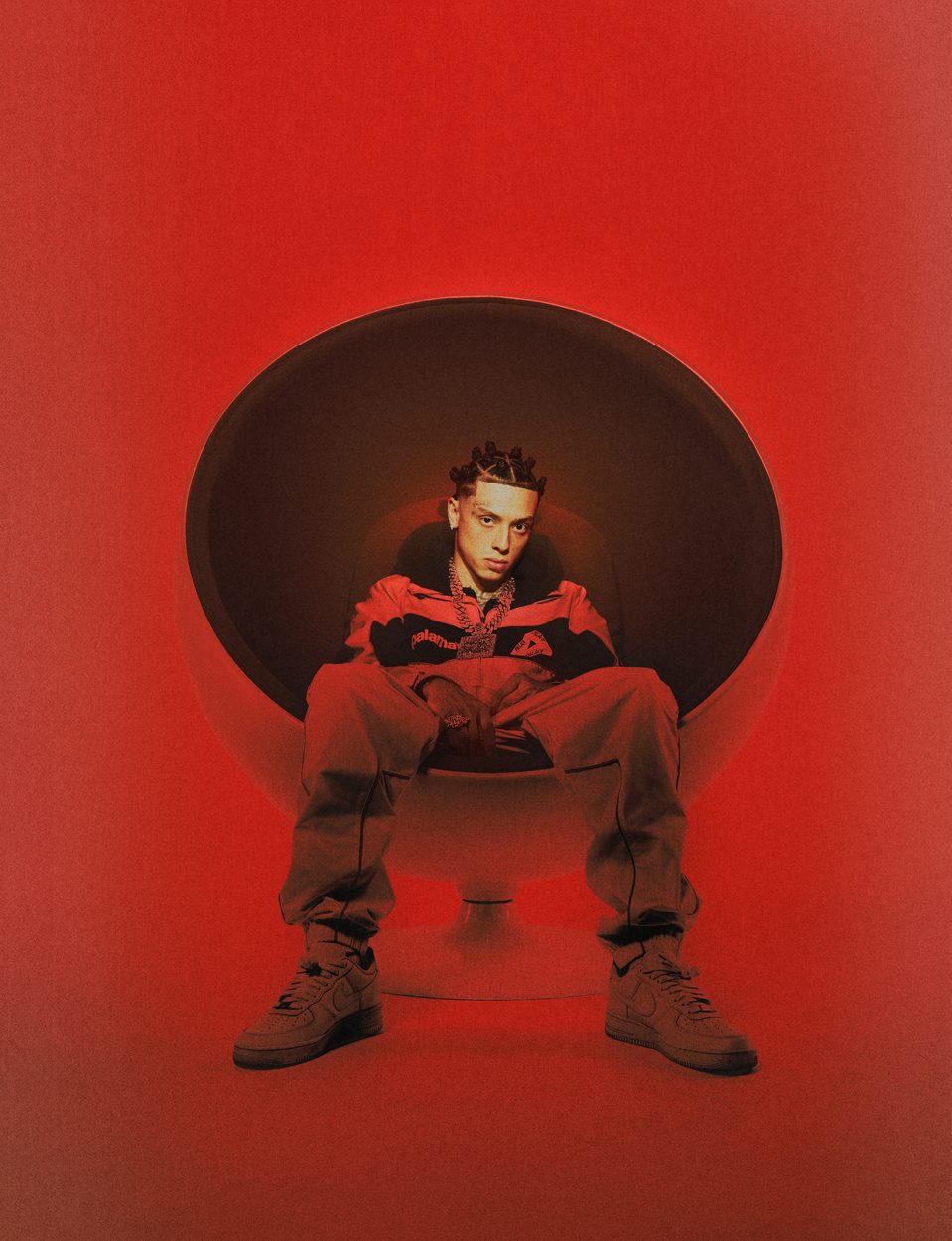



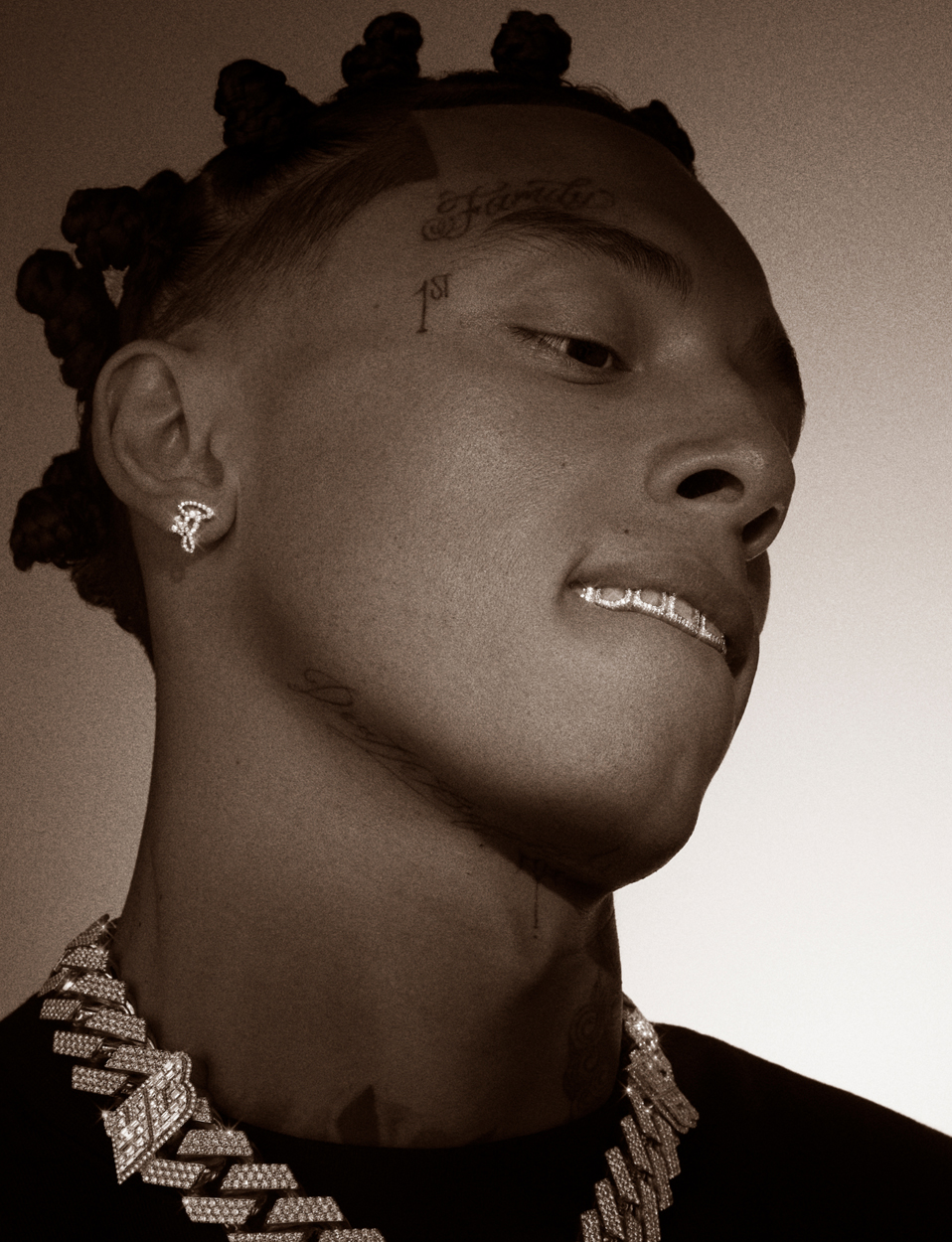
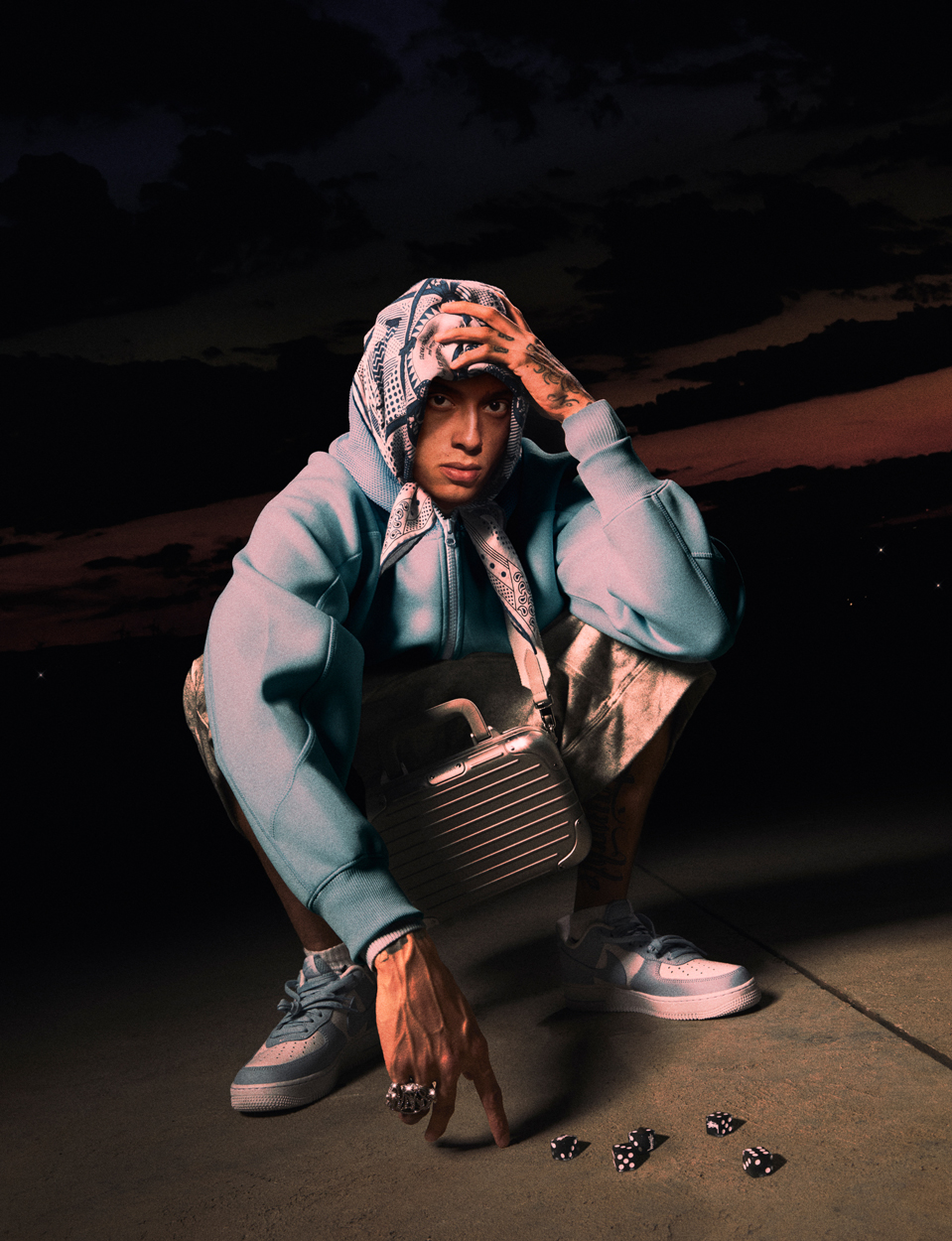
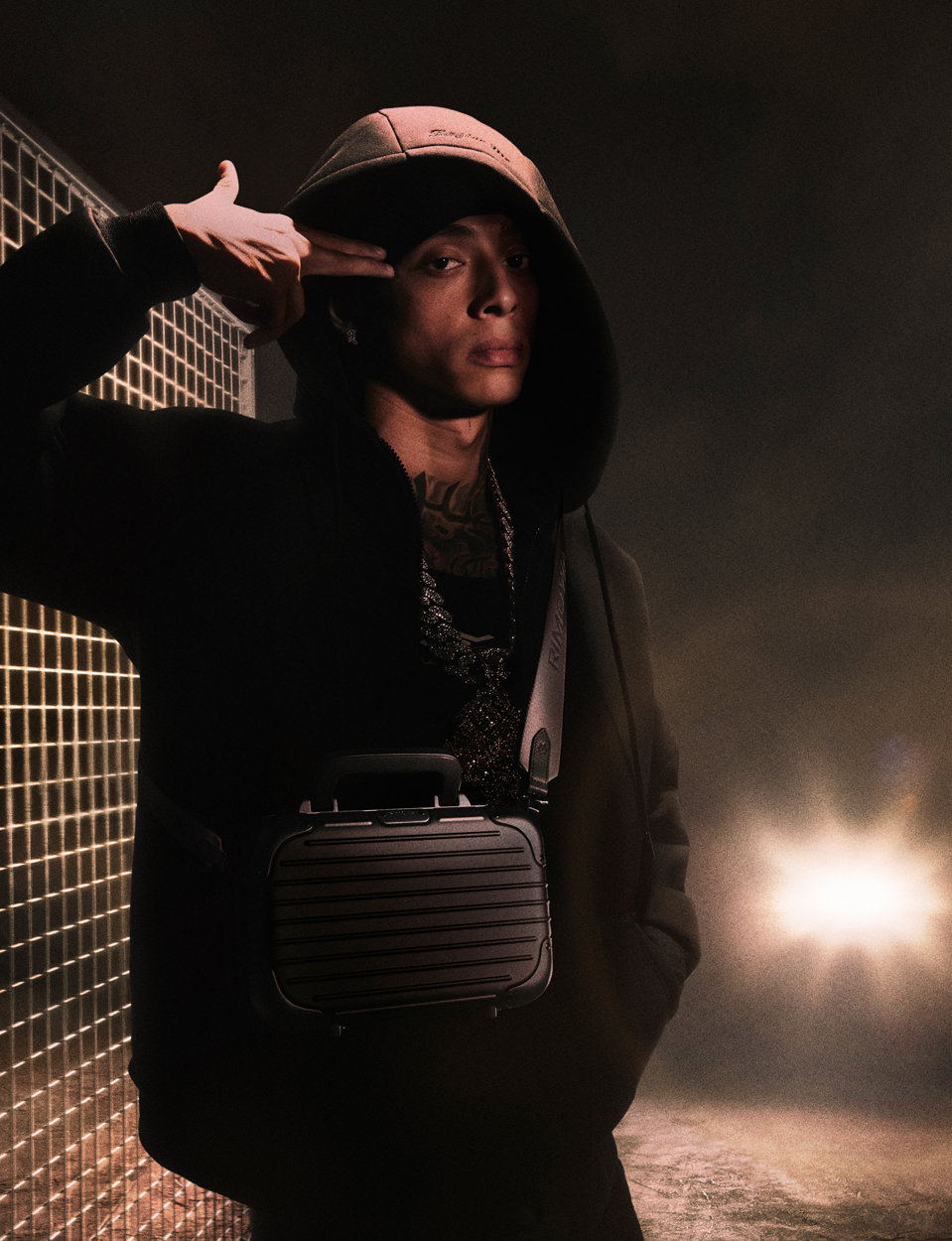
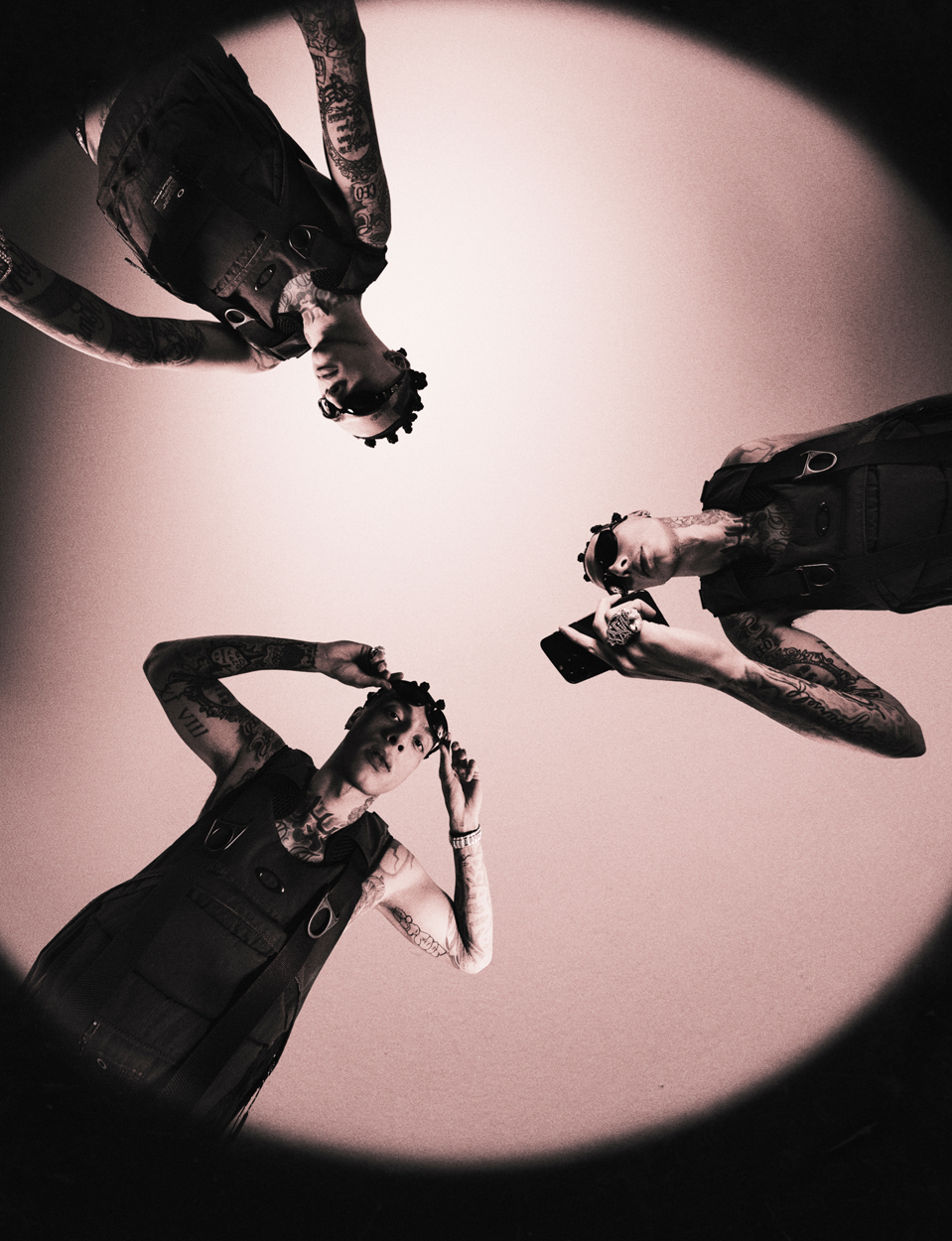
“Happiness is simple, bro. Family and health, innit?”
Happiness, and the pursuit of it, is something human beings have been trying to master for centuries. Despite the fact that English philosopher John Locke gave birth to the phrase “pursuit of happiness” in the 1600s, we might be further away from understanding what this actually looks like than ever before. The world wide web is a tangled mess of new age ideologies and self-help guides that only serve to clutter our already busy minds, often with ideals that align hustle culture with satisfaction and contentment. The information age has complicated an idea that was once rooted in simplicity, starting a family, being healthy, helping others and forming meaningful relationships with those around us, yet these are all but forgotten tenets of happiness.
Now, followers and view counts have become modern day metrics which have slowly seeped into the psyche, adding another unattainable threshold that must be met in order for us to consider ourselves happy and content. Previously, material wealth was the only currency that we strived for, now, the maintenance and perception of our digital selves has become a measurement that we compare ourselves against, consistently leaving us less satisfied with our own lives.
We’re overexposed to a barrage of unrealistic examples of career progression, body image and lifestyle, thanks to the frontiers opened up by new media. Our lives rarely match what we encounter online, so consequently, we’re always left feeling like we could be happier, we could be more successful, and the feeling of being content gets lost somewhere in this melee.
But what about those select few that have become the blueprint? Supposed pillars of digital and real world perfection, flush with social cache and disposable income to boot. Does happiness look and feel different once you’ve reached the mountain top? Central Cee and Luciano are now walking amongst this 1%; they’ve reached the apex of their careers. Both got there by becoming innovators in Drill music. Central Cee’s lucidity and memorable lyrics have single handedly built bridges between UK and US rap in ways that have never been seen before; and on home soil, Luciano is the driving force in bringing Drill to the mainstream, propelling himself and Deutschrap as a whole to new heights in the process.
After over ten years of hard work and sacrifice, the pair are no strangers to such achievements and accolades, it’s almost become the norm. Central Cee was streamed over a billion times in a year (the first UK rapper to ever reach these numbers), and is now without question one of the most in demand artists globally, partially due to his pioneering collaborative approach, working with artists in countries like Mexico, South Korea and, of course, Germany. Similarly, Luciano has embarked on a one man crusade to take Deutschrap to places beyond language barriers, fearlessly bringing his distinct German drawl to countries all over the world.
They’re living their dreams, and with seemingly boundless ambition between them, there will always be something else. But does this mean they’re happy? Is it even possible to be content when you’re born with the kind of determination that brings you success of this magnitude? Before Central Cee’s world domination is solidified with the imminent release of his debut album, Luciano joins him for a discussion on what makes the first album so important, how to really make an impact on different continents, and what happiness really means.
Luciano: I think it’s a feeling. When you do like a couple of singles and you see you have a fan base. I can play big club shows, big concerts, big festivals, and the fans are asking for it. Then, you need an album
Central Cee: Feeling and timing as well. I’ve done my two mixtapes now, so I’ve got to move on. I think that’s what everybody does. You become an artist to make an album, really. You just got to get to the point where people care enough for you to make an album, because some people don’t have enough fans who even care. They just want to hear singles, but you want to get to a point where you can drop a whole album and people are tapping in.
L: Yeah, I think so. It’s really different. Because I think with a mixtape, you just put songs together in one package and put it out. But with an album, you put more emotion and thought into it, you know? Because you want to be successful, and you want to say something.
CC Yeah, that’s what I think it’s supposed to be and that’s what I’ve always thought. When I did my first mixtape, Wild West, I was always thinking that when it gets to album time, I’m going to take it all the way, so much more serious and whatever. Luckily, I’m still kind of in a position where the fans are not bored of me yet. But now that it’s album time, I just ended up repeating the same process. I haven’t actually done anything too different to how I made Wild West. Obviously, the main difference is the fact that I’ve got different stories to tell now. But other than that, I kind of repeated the same process, which kind of makes me confident because
that’s what people liked originally, but it also makes me a bit nervous because I wonder if I should have done things a little bit differently. But, we’ll see.
L: Bro, please don’t forget Drill, because you came from there. And also a song for the ladies. The ladies’ thing, maybe you can do it a little bit differently. Maybe a Central Cee Reggaeton song. You know, when the song comes in the club and all the ladies shake their hips! The Caribbeans, Columbians, Ecuadorians, you know? Because your flow would be so clean on this Caribbean shit, bro. It’d be nice.
CC: You’re right. I got a few like that still. I got the Drill, I got something not really Reggaeton, but it’s some sort of mad thing like that. I got a few things. I got something for the ladies as well.
CC: I think no matter what you do, even if your second, third, fourth
album is better, people are always going to revert back to your first album. They’re always going to say the first album is the best one. Ed Sheeran told me that one time. And it’s just been stuck in my head since. And it’s true – I see everyone always just talking about people’s first album and never anything else, really.
“Accept the pressure, accept the overthinking, and be yourself. And don’t forget that you made music for fun in the beginning.”
L: Only a couple of little things, because I think Cench is a big artist.
But I can tell him: Accept the pressure, accept the overthinking, and be yourself. And don’t forget that you made music for fun in the beginning, you know? When you go to the studio for the first time and you have this new, fresh feeling, you want to say everything, you want to prove yourself. It’s important that you don’t forget this.
CC: People from the UK definitely have worked with European artists
before me, but I think I just put a bit more love into it. I put in a bit more passion. It’s not just a feature. I really went to these countries, and touched soil, met the rappers, and got an understanding of the culture, wherever it is, whether it’s Italy, Germany, or France. I think that’s the difference.
CC: Yeah, I try to be. The goals never change, though, it’s just the
reach that does. Now, I have an opportunity to do more in America, so it’s not new goals that I’m setting, it’s just more people I need to target, essentially. But, at the same time, I’m ready to be content with whatever it is. I’ll never beat myself up because a new song isn’t a hit or something plateaus because, if anything, I’ve already achieved my goal – all I wanted to do is buy one house. I’ve bought more, so I’m fine. I can easily just relax now and accept what comes. Like they say: Prepare for the worst, but expect the best. That’s how I live still. But it’s a fine balance between being content and not wanting to settle for less. Sometimes, you need to be ambitious, but I don’t know, sometimes, you have to know when to just quit. People say never quit, but I think maybe sometimes you have to quit, you know?
L: I think my happiness is music. When I’m in the studio and I make
a nice hit, then I’m happy. When I go out, release the hit, and see all the love from the fans and all these comments and all this nice stuff – because I still read comments – this is happiness, for me. And also when I see my daddy is proud, my mama’s proud, because all they want to know is that their son is successful.
CC: I think happiness is simple, bro. Family and health, innit? Like, life can be really simple. It should be really simple. Obviously, the way we grew up is hard, but if you’ve got enough money to just live and be stable, it’s all right, man. That’s all that really matters, the small things. The things that money can’t buy are the things that really matter, but obviously, sometimes when you’re busy chasing money, you can’t even appreciate the small things.
L: Success is not luck, it’s hard work. For me, luck is different
things. You can be lucky in love, or you can be lucky like in the lottery. But when it comes to music, if you’re lucky, you might be a one hit wonder. To be a good artist, you need to be a hustler and be disciplined. Success is more about discipline and talent, not luck or coincidence.
CC: I don’t really like the idea of luck. It’s hard work. There’s no such
thing as luck. I like this quote: “Luck is when preparation meets opportunity.” It’s being prepared for when a door does open or opportunity does arise. Because there are opportunities for everyone, but not everybody’s ready for it. There might be opportunity right in front of somebody’s face, but they’re scrolling on TikTok so they don’t even see it. I saw it. But that doesn’t mean I’m lucky. It just means I was prepared.
CC: It feels great. Before me, there was a Skepta who opened the doors for me to be able to do what I’m doing. That’s what I’m doing now – opening doors for somebody else to come after me and do something even greater. It can’t stop with me, you know what I’m saying? I can’t just be the biggest and then that’s it.

It's the 6th edition of Fashion Positions, the Berlin fashion fair that has more in common…
Interview by Marcus Boxler

On November 11, eight Colombian superstars came together to release a tribute song…
Image courtesy of Good Machine PR

The bags Bagdad-born and Sweden-based designer Susan Szatmáry creates are those kinds of…
Interview by Sina Braetz